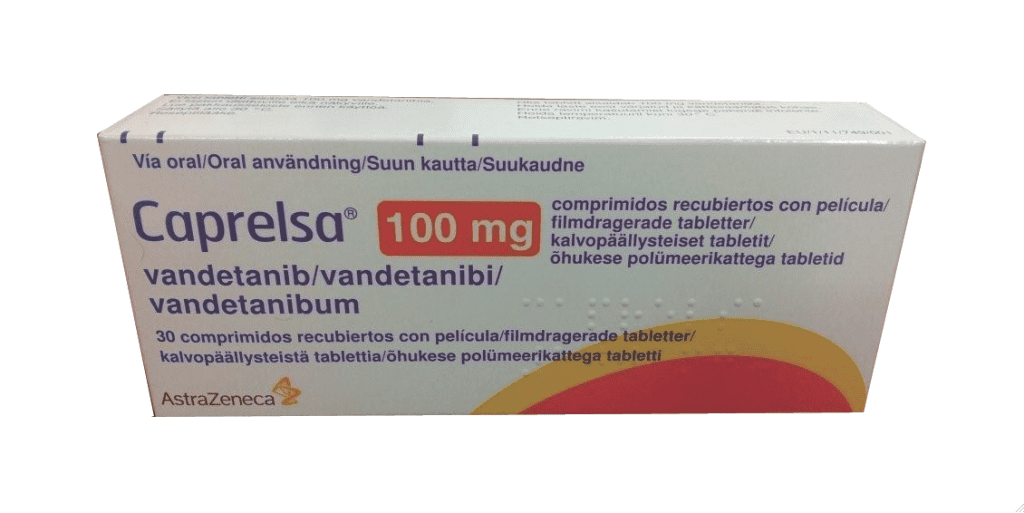
Caprelsa approved in Europe for thyroid cancer
pharmafile | February 21, 2012 | News story | Sales and Marketing | AstraZeneca, Caprelsa, FDA, RET, thyroid cancer
The European Commission has approved AstraZeneca’s thyroid cancer pill Caprelsa.
Caprelsa (vandetanib) is now available in Europe for the treatment of aggressive and symptomatic medullary thyroid cancer in patients with unresectable locally advanced or metastatic disease.
Advanced medullary thyroid cancer (MTC) is a rare type of the disease with a poor prognosis, and currently there are no approved therapies in Europe.
But whilst the drug was approved, there was one snag: Caprelsa may not be as beneficial in patients without, or are not known to have, a particular mutation – the Rearranged during Transfection (RET) mutation.
For patients in whom RET mutation is not known or is negative, a possible lower benefit should be taken into account before treatment, AZ said.
The firm added that its clinical data shows patients benefit from treatment with the drug regardless of their RET status.
But in line with Europe’s requirements, AZ said it would conduct a further study to confirm the benefits in patients who are RET-negative.
A pharmacovigilance plan for Caprelsa will also be implemented as part of the marketing authorisation, given its high number of common adverse events.
Caprelsa works as a once-daily oral treatment that uses two distinctive mechanisms of action.
The first is by blocking the blood supply to the tumour, by slowing the vascular endothelial growth factor receptor pathway and reducing the growth and survival of the tumour through epidermal growth factor receptor and RET pathways.
Caprelsa was first approved by the FDA and launched in April last year, and is expected to bring in $112 million a year by 2016, according to analysts.
This is a much lower prediction than the blockbuster figures touted last year, when the drug was also being investigated for non-small cell lung cancer.
The drug however failed to succeed in clinical trials involving this patient population.
But for MTC it has performed well in late-stage trials, and showed statistically significant improvements versus placebo, including six months additional progression-free survival.
Competition in the wings
Caprelsa may soon have some competition from Exelixis’ MTC candidate cabozantinib, which was granted orphan drug status by the FDA in January last year.
It also impressed in a Phase III study last October when its drug improved median progression-free survival in by 11.2 months, versus just four months in the placebo arm.
Ben Adams
Related Content

MRM Health’s ulcerative colitis treatment receives FDA Investigational New Drug clearance
Microbial Resource Management (MRM) Health has announced that its lead programme, MH002, has received Investigational …

Complement Therapeutics’ geographic atrophy treatment receives FDA Fast Track designation
Complement Therapeutics has announced that CTx001, its gene therapy treatment for geographic atrophy (GA) secondary …

Johnson & Johnson submits robotic surgical system for De Novo classification
Johnson & Johnson has announced the submission of its Ottava Robotic Surgical System for De …





